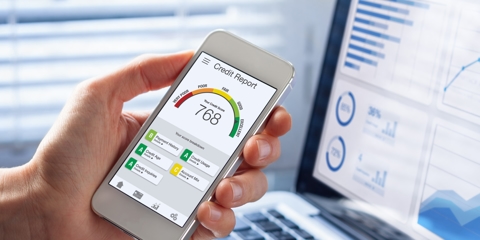There are situations where a person may have a mountain of consumer debts, such as credit card bills, car loans, and medical debt, but could have a significant amount of money in a retirement account such as a 401(k) or IRA. It can be very tempting to dip into that account in order to pay off those debts when creditors are constantly harassing you to pay off the debt.
However, that is usually not a very good idea for a number of reasons. First, there is normally an early withdrawal fee as well as hefty taxes. Secondly, your retirement funds are exempt from garnishment or levy. Thirdly, credit cards and medical debt can be discharged through bankruptcy. Lastly, it does make sense to take a loan from a retirement account, such as a 401(k), in order to pay off debt. If you take a loan, you have to pay it back over a certain period of time. If you are able to make your loan payments, you most likely have the money to pay your creditors directly. Therefore it is not a good idea to take a loan out against your retirement proceeds.
Do Not Misallocate Your Retirement Income To Pay Debts
For certain types of debts, filing bankruptcy makes more sense. Debts, such as credit card debts and medical bills, are unsecured and can be discharged in bankruptcy. Others, however, cannot be discharged in bankruptcy. These include alimony, child support, and student loans (in some instances these debts can be discharged). If your debts are dischargeable in bankruptcy and you are in over your head in debt, bankruptcy can be a great tool to provide you with a fresh financial start. If you choose to file for bankruptcy, your credit will be improved as your creditors will no longer be able to report derogatory information to the various reporting agencies.
Additionally, you can use a secured line of credit to help rebuild your credit score.
The worst thing you can do when you are in over your head in debt is simply do nothing and stop paying the creditors. In some situations your creditors may not be able to take any action against you. This typically applies to individuals with no income or assets. However if you are employed, your creditors could possibly file a lawsuit against you and garnish your wages. Typically up to 25% of your income after mandatory deductions. Creditors can also attempt to collect by seizing any money in your bank accounts or place a lien on your home. Creditors cannot however garnish or levy your retirement accounts. Any 401(k), IRA, or other retirement accounts are exempt from collection.
Call Now
When deciding to access your retirement accounts there are many options. If you are considering accessing your retirement funds early or confused about how to resolve your debts, call the Atlanta bankruptcy attorneys at Holston & Huntley at (404) 620-3337. Our attorneys are experienced and can help find the right solution for you! Call us today to schedule a FREE consultation. We also serve the State of Alabama.





